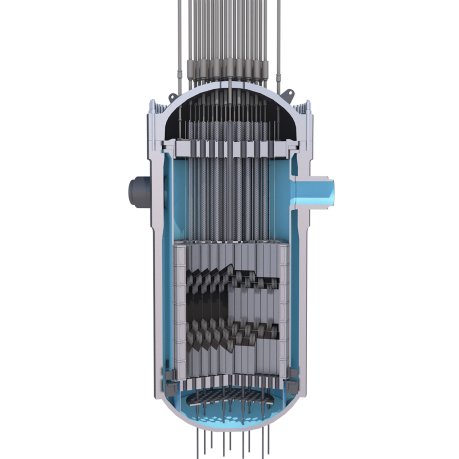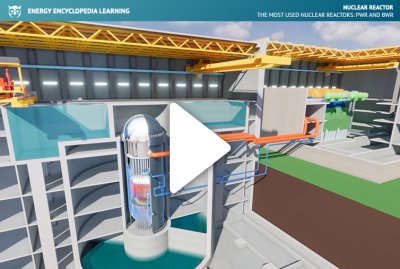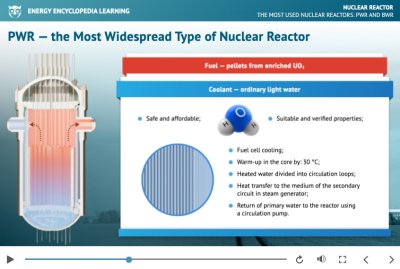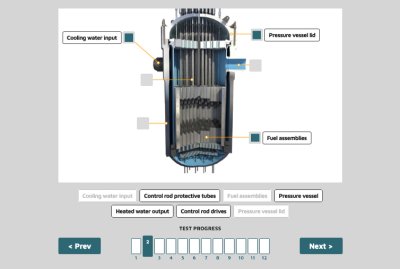
Nuclear reactor
A device inside which a controlled chain fission reaction takes place. The reactor usually has the form of a metal pressure vessel, in the middle of which the nuclear fuel is arranged in a so-called core. A coolant, whether gas or liquid, circulates through the core to dissipate the heat generated by the fission reaction. The power of the reactor is controlled by control rods that are inserted or withdrawn from the core as necessary. If the reactor uses thermal neutrons for fission, it also includes a moderator, either in the form of a liquid or a solid, which slows down the neutrons.
Heat, generated by a reactor, is most commonly used. Either directly for technological purposes (e.g., hydrogen production by steam reforming) or for electricity generation by a steam turbine. The reactor can also be used to produce nuclear fuel (breeder reactor), or the strong neutron fluxes produced by the reaction can be used for research purposes or for the production of radiopharmaceuticals.
There are a number of types of nuclear reactors, with the most common types used for electricity generation being water-cooled PWRs and BWRs. In 2023, there were 436 nuclear reactors in operation in the world.
Explore related 3D models
Download more in Free Downloads







